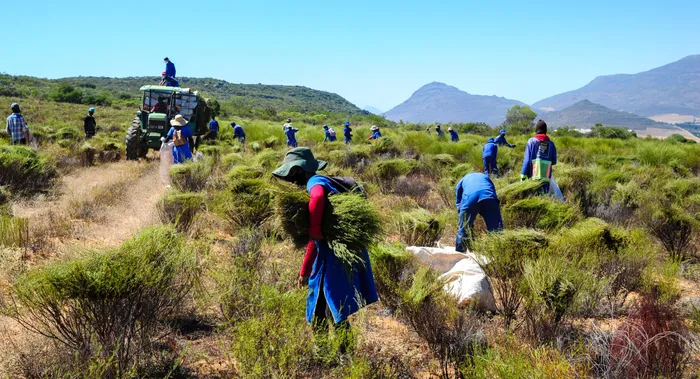Parliament to probe Farmworker Equity Schemes

MPs on the Portfolio Committee on Land Reform and Rural Development want to understand why farmworkers have been "cheated" out of millions invested in Farmworker Equity Schemes.
Image: Henk Kruger/Independent Newspapers
ONLY nine of the 88 Farmworker Equity Schemes, worth millions of rand and launched from 1996 to 2008, ever declared dividends.
This has triggered MPs on the Portfolio Committee on Land Reform and Rural Development to set their sights on understanding why farmworkers have been "cheated" out of millions invested in the schemes.
More than R700 million in public investment has been made towards the schemes yet farmworkers and their descendants still live in poverty with no security of tenure.
The idea of the schemes involved the state providing conditional grants to groups of farm workers to enable them to purchase equity (shares) in the farms or agribusinesses in which they were employed. These initiatives were framed as a mechanism to empower workers and advance transformation in the agriculture sector.
Committee chairperson Albert Mncwango said civil society organisations, speaking on behalf of farmworkers, said many farmworkers received no dividends at all or only minimal returns, often in most cases, totaling less than the value of the conditional grant originally transferred to buy their shares.
The committee confirmed they would be doing site visits to a sample of the equity schemes, as the start of a comprehensive probe into allegations that, “farm workers were made symbols while others cashed in on their names”.
Most of the schemes are in the Western Cape (61%) followed by the Eastern Cape (24%).
The 2019 report of the Presidential Advisory Panel on Land Reform and Agriculture noted how owner-employers maintained their dominant position in trusts set up for the scheme, according to a petition by several organisations including the Surplus People Project, Corruption Watch, the Legal Resources Centre and the Support Centre for Land Change,
In several cases, workers were subsequently ‘bought out’ by their commercial agribusiness employers after years of participation without having received any dividends or tangible benefits.
“In these cases, the farm worker effectively provided interest-free capital to agribusinesses under the guise of empowerment,” the petition read.
“Officials of the then DALRRD have in the past disclaimed responsibility for these schemes, arguing that these are private employee trusts outside the scope of state intervention. However, the schemes were publicly funded, initiated by the state and widely presented as vehicles of land reform. Over R30 million was paid to consultants as planning grants, some reportedly former staff members of the department. The state cannot now disown responsibility for the design, oversight and legacy of these schemes.”
LRC lead attorney on the matter, Sipesihle Mguga said the committee noted that the department would be invited to the next meeting to respond to these concerns, and that a more systemic approach would be needed to address the issues effectively.
Corruption Watch project lead and senior researcher, Melusi Ncala said: “We welcome the intervention and the promise to probe the rot in Farmworker Equity Schemes.”
Rural and Farmworkers Development director, Billy Claasen, said: I have a case where R7 million disappeared, the farm was sold, the farmworkers' animals are gone. Their equipment is gone and workers get chased away like dogs. When they apply for housing, they get told no they don’t qualify because they’ve already received a government grant but the worker has not seen any benefit.”
Cape Times